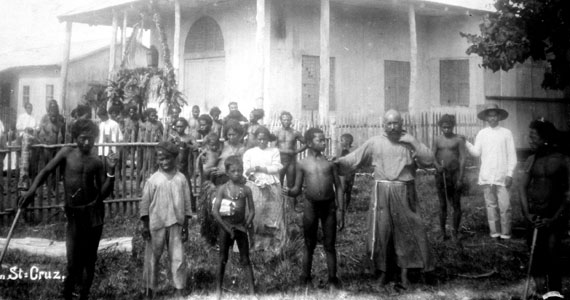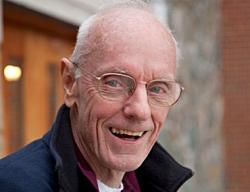The Knock on the Door… Again and Again
At first it felt noble to offer help to the needy. The knock on my door… the sad face on the other side… I reach into my wallet and put a bill into someone?s hand… repaid by a little smile and the warm glow inside that I had done a good deed.
Then the pace picks up, I find. The knocks on the door become more frequent… three or four times a day, sometime even more. They also become more insistent. A few days ago, beginning at six in the morning, I listened to someone knock for 25 minutes as I tried to keep my temper under some semblance of control. The gospels may urge answering the pleas of the poor, but for me to do so then would have been an invitation to commit homicide.
On and on they come, encouraged by the word on the street that there are a couple of ?new? priests at Santa Barbara who offer bills to the needy. It?s a steady stream of the quasi-homeless, I guess, but they come at all hours of the day, demanding help. When I offer them food, they take their parcel and then ask why they aren?t getting rice along with the tinned foods. Or some of them insist on getting money for gas… or to pay the water bill… or to obtain a document they need. So I’ve learned not to answer the door every time I hear a knock.
Last week, when I returned to my room after a twenty-minute exercise routine on the treadmill, my wallet and cell phone were gone. This was the second time in as many months that I?ve had cell phone and money taken?the first was on a visit to another island, but the thief then was kind enough to remove the money and leave the wallet. This time the thief took the wallet along with the money. So I did what I always did when such things happened on Pohnpei and Chuuk: I walked around telling everyone I met how annoyed I was. This time it worked. The following evening I heard a knock on the door and opened it. In staggered a young guy who looked as if he had enjoyed ten beers too many. Mumbling apologies and hugging me, he fumbled around in his satchel and handed me my wallet?no money, of course, but all the cards and licenses and photos were there.
Was he returning something he himself had taken? Or did he find it on the road somewhere? He didn?t say and I didn?t ask. I was so grateful to get the cards back that I sent him off with a cash reward.
So here we are, still in the lustre of Easter joy, and I?m
feeling discouraged. So many people out there seeking help?the requests never
stop. We feel bad ignoring the knocks at the door. But when we do try to help,
they look at us oddly and complain that it?s not enough. How in the world did
the saints learn to do their charity thing with a smile on the face!
Closer at hand than Saints Dominic and Francis these days are those whose full-time work is to provide for the needs of the homeless?those who work at GHURA, Catholic Social Services, Salvation Army and all those other agencies that focus on feeding and providing shelter for the homeless. Because of the film we?re now making on the homeless problem on Guam, I find myself talking with them often these days. Each of them has stories that make my own complaints here seem insignificant. Yet, they bravely work on in the hope that they can make a difference.
I?m supposed to be the priest, the symbol of God?s love for the most needy, but I can only wish that I had the clarity of mind and unwavering sense of purpose that they have.





